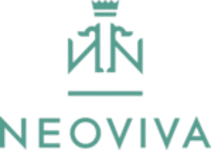While LGBTQ+ lifestyles are socially accepted in some parts of the world, the global contemporary zeitgeist of ambivalence and in more extreme cases, active criminalisation, perpetuates the internalisation of a rejecting and devaluing attitude towards one’s self and one’s identity. When you internalise the notion that your gender identity, sexual orientation, or queer lifestyle is wrong or sinful, you become deeply ashamed of yourself and start to wage a battle against yourself. Parts of yourself cannot mature in the same way as in people who are affirmed in their identity and have it accepted unconditionally. The inner conflict between your authentic desires and the internalised negative norms may become increasingly unbearable over time, resulting in chronic feelings of shame, low self-esteem, and depression. Internalised forms of negativity can also manifest as self-sabotaging behaviours, including difficulties in relationships, addiction to substances, and choices that undermine healthy lifestyles.
Same-sex partnerships, trans-bodies, and queer lifestyles call into question patriarchal family values, heteronormative politics, and religious traditions. These structures are still very much embedded in contemporary society, which means that an LGBTQ+ individual’s pursuit of happiness and authenticity must be navigated through a complex interplay of hypervigilance and cognitive dissonance. That is, while LGBTQ+ individuals may feel a sense of comfort in expressing themselves, they often remain on high alert, constantly monitoring aspects of their identity that do not align with prevailing norms. It is for this reason that rates of substance use are so high among the LGBTQ+ population. According to a Swiss national report, the incidence of substance use and substance use disorders is three to four times higher among the LGBTQ+ community compared to the general population, a statistic also observed in various regions worldwide. Drugs and alcohol serve as survival strategies, as useful agents that regulate self-esteem, increase feelings of control, and fight loneliness in the absence of safety and a secure attachment to the family, society, and the world.
Certain groups within the LGBTQ+ community are also more vulnerable to violence and discrimination. This is due to various intersecting factors, including race, gender identity, socio-economic status, and geographic location. Experiences with violence and discrimination contribute to the heightened prevalence of acute traumatic and post-traumatic syndromes in these populations and contribute to the severity of other mental health difficulties.
Addressing the issues that LGBTQ individuals face requires a multi-faceted approach that includes structural reform (legal protections, education, community support) and the creation of safer environments. Queer-affirmative therapeutic spaces can provide such a safe environment. The word ‘affirmative’ emphasises the importance of open and flexible dialogues about the enduring influence of social, cultural, political, and legal structures that continue to negate, discriminate against, or pathologise queerness. Such honest conversations can level the playing field between therapist and client, foster empathy, and indicate that the therapist has no fear of gatekeeping what can and cannot enter the session. While queer affirmative therapies aim to promote and celebrate events like ‘coming-out’, gender reassignment surgeries, and queer family planning, they must also provide a home for the safe expression of shame and internalised queer-negativity. This includes the ambivalence that some LGBTGQ+ people experience in fully embracing one’s difference, along with the difficulty and sometimes the fear of shedding the internalized gaze of queer-negativity. Here, the essential task is to remain attentive to how profoundly the experience of ‘otherness’ influences the lives and self-perception of queer individuals. This sense of ‘otherness’ never really goes away and continues to shape their sense of security in the world and their interactions with others. For example, the ongoing stress associated with concealing one’s identity in certain contexts, or the need to carefully curate one’s behaviour, can significantly restrict the ability to live life to the fullest.
The queer-affirmative therapist also needs to be aware of how particular ‘therapeutic stances or viewpoints might unwittingly reinforce the boxes that have confined and marginalised LGBTQ+ individuals in the first place. That is to say that a queer-affirmative therapist must recognise their position of power and influence, and how it can be used – consciously or unconsciously – to perpetuate the normative dynamics that made it difficult for the client to deal with their gender or sexual diversity in the first place. Often, the therapist will avoid thinking in binaries, instead allowing the client the space to envision and structure their lifestyle in accordance with their own desires and beliefs. In this regard, it is important to impart the idea to the client that they have the freedom to formulate their identity in such a way that it need not conform to certain boxes or to specific LGBTQ+ categories.
In contrast to more mainstream queer affirmative approaches, our approach places the emphasis on the individual’s lived experience rather than a one-size fits-all affirmative solution. It recognises that queer identities are not monolithic; they encompass a vast spectrum of experiences, feelings, and histories. This perspective shifts the focus from merely providing affirmation as a checkbox to a deeper exploration of what affirmation means for each person. We recognise that affirmation is not just about external validation but also about internal reconciliation. The journey towards self-acceptance can be fraught with challenges, and it is crucial for therapeutic practices to honour this process, providing support that is fluid and adaptable, that is about the journey rather than the destination.
In summary, a queer affirmative approach:
- Offers a respectful, accepting, non-pathologising attitude towards LGBTQ+ orientations and lifestyles.
- Recognises and dismantles heteronormative structures in society and conceives of gender and sexuality apart from fixed identity categories.
- Recognises the reality of violence, stigma, and discrimination, and appreciates the journey that is sometimes required to reckon with one’s difference.
- Supports non-heterosexual people with specific social and psychological difficulties, including internalised queer negativity.
- Addresses specific LGBTQ+ topics such as dealing with sexuality, sexually transmitted diseases, the youth/ageing phase of life, integration into the community, family concepts etc.
- Understands that it is the collaborative effort to clarify the meaning of affirmation for the individual that is more therapeutic than the implicit demand to conform to an affirmative approach.




0 Comments